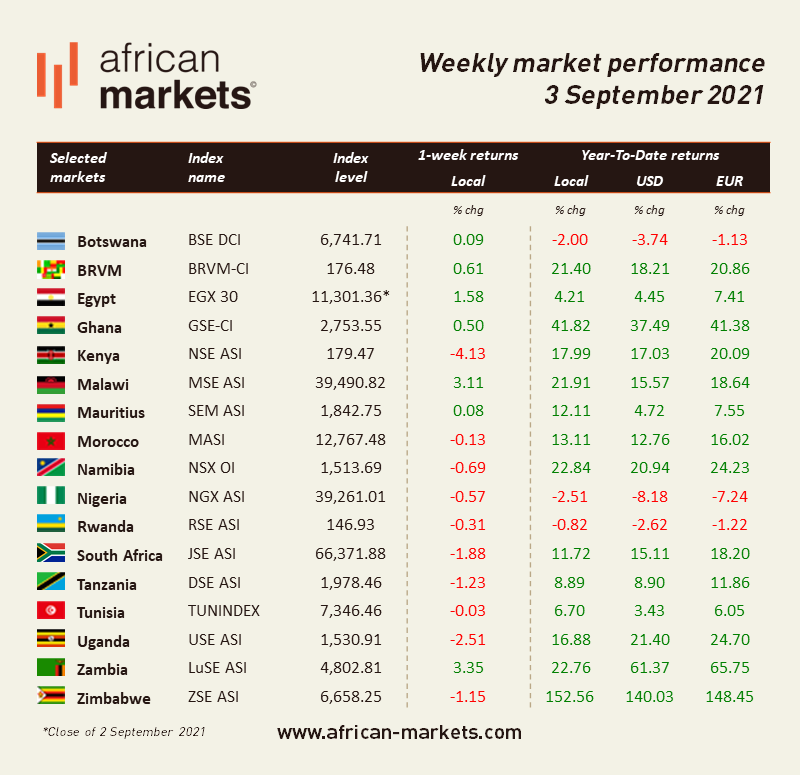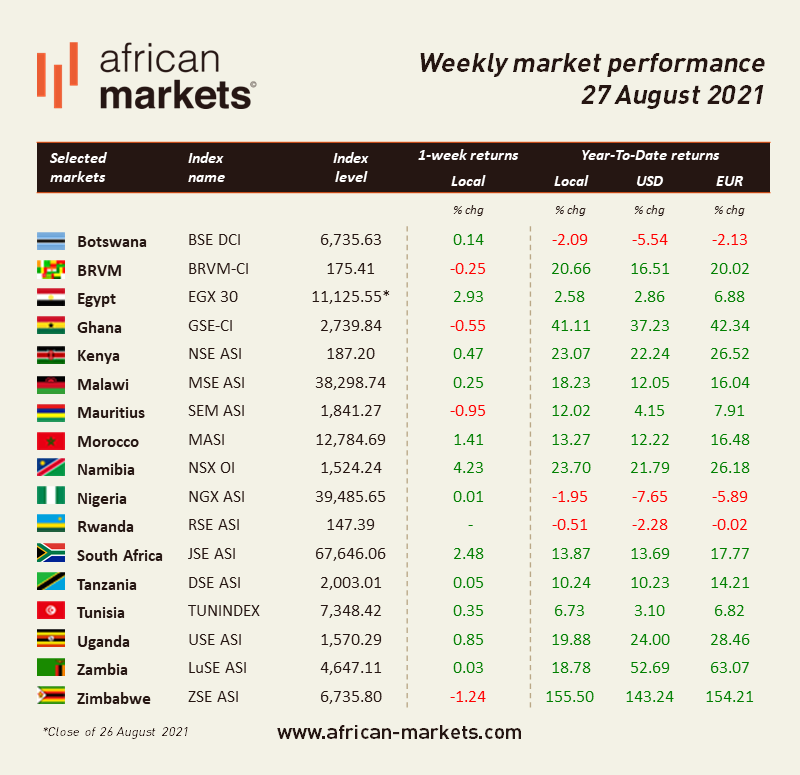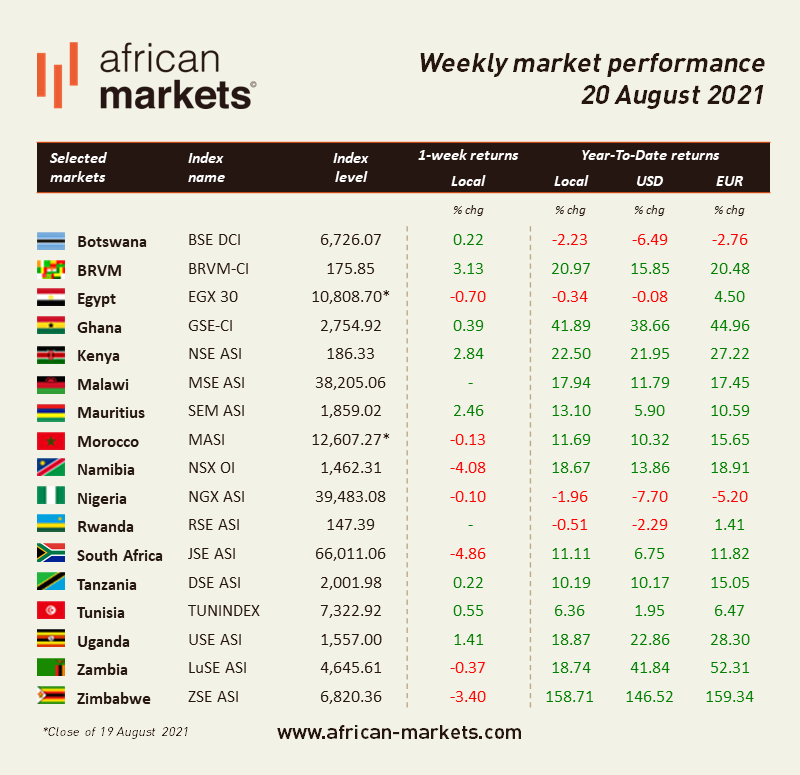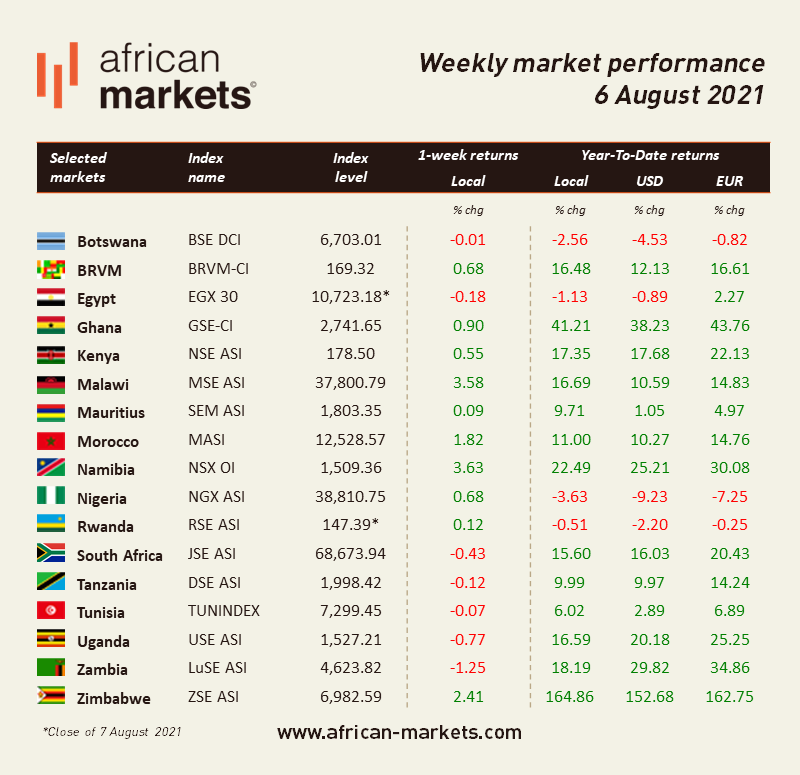This week has been eventful on African markets with the main event being the sudden political turmoil in Zimbabwe and the immediate market sell off which ensued.
Zimbabwe’s military seized power early on Wednesday in an effort to target “criminals” around President Robert Mugabe. The military insisted that the situation would go back to normal as soon as they are able to pacify a degenerating political, social and economic situation. As a result, the overvalued Zimbabwe Stock Exchange recorded one of its biggest drops in recent times. Throughout this year the index has been a safe haven for individuals trying to escape the liquidity squeeze. Downward pressure should remain until there is clarity on how the country’s economy will evolve and when the impasse is solved. Zimbabwe faces numerous economic challenges among which a collapse in agricultural production and hyperinflation driven by a shortage of cash and higher food costs. The ZSE lost 18.59%.
According to the National Bureau of Statistics (NBS), Nigerian annual inflation slowed for the ninth month in a row in October, easing to 15.9%. Central Bank Governor expects inflation rates decrease to accelerate and reach high single-digit rates by the middle of 2018. The NGSE lost 1.12%.
The Central Bank of Egypt (CBE) kept the key interest rates unchanged due to the decline of annual headline and core inflation, to 30.8% and 30.5%, respectively, during October 2017. According to the CBE, monthly core inflation recorded 0.7% in October (versus 0.19% in September) due to the seasonal increase in the prices of education services. Retail prices however remained unchanged as food inflation continued to decrease, supported by the continued decline of core food prices for the second consecutive month. The country’s GDP continues to improve growing 5% in the fourth quarter of 2016/17. The CBE reiterated its confidence in achieving its inflation targets of 13% (+/- 3 %) in 4Q18 and single digits thereafter. There is indeed no reason to believe it will not be able to reach its objective. The EGX30 lost 3.50%.
South Africa’s sole power utility company stated on Monday that it was facing cash flow challenges and that it would be in trouble should the issues continue. According to local press, the utility’s liquidity reserves are expected to fall to 1.2 bn rand ($82 mn) by the end of November compared to a target of 20 bn rand. The JSE traded higher this week gaining 0.59% as upbeat news about South African economy supported the index. The Statistics office reported that South African retail sales rose by 5.4% year-on-year in September, after increasing by a revised 5.4% in August. This is higher than the 4.5% expected by consensus.



































